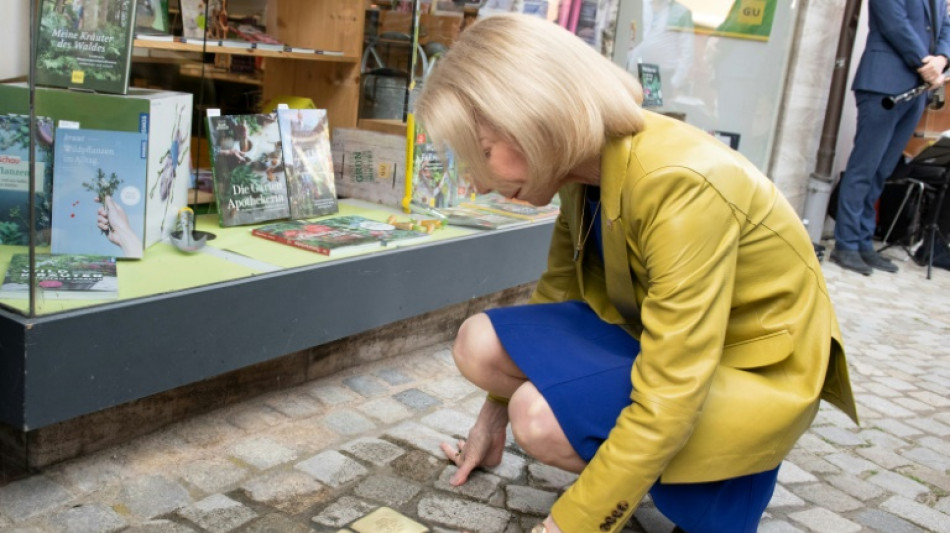
-
 Meta quarterly profit climbs despite big cloud spending
Meta quarterly profit climbs despite big cloud spending
-
US Supreme Court weighs public funding of religious charter school

-
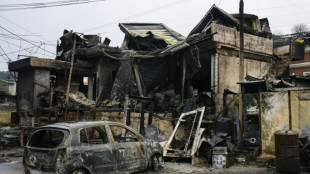 Climate change made fire conditions twice as likely in South Korea blazes: study
Climate change made fire conditions twice as likely in South Korea blazes: study
-
Amorim says not even Europa League glory can save Man Utd's season

-
 Syria reports Israeli strikes as clashes with Druze spread
Syria reports Israeli strikes as clashes with Druze spread
-
Ukraine, US say minerals deal ready as suspense lingers
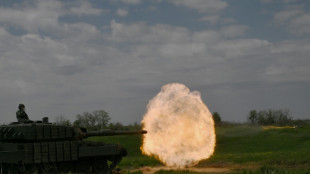
-
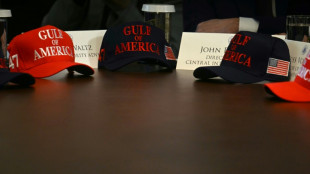 Everything is fine: Trump's cabinet shrugs off shrinking economy
Everything is fine: Trump's cabinet shrugs off shrinking economy
-
Chelsea boss Maresca adamant money no guarantee of success

-
 Wood warns England cricketers against 'dumb' public comments
Wood warns England cricketers against 'dumb' public comments
-
US economy shrinks, Trump blames Biden
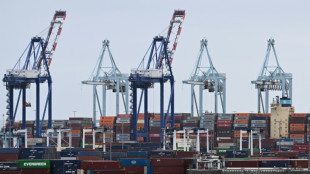
-
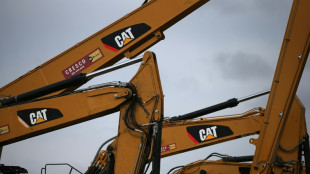 Caterpillar so far not hiking prices to offset tariff hit
Caterpillar so far not hiking prices to offset tariff hit
-
Japan's Kawasaki down Ronaldo's Al Nassr to reach Asian Champions League final
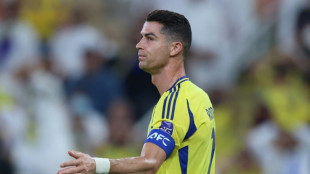
-
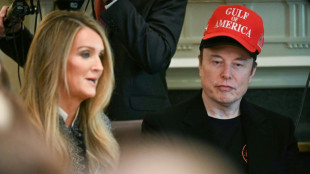 Trump praises Musk as chief disruptor eyes exit
Trump praises Musk as chief disruptor eyes exit
-
Chahal hat-trick helps Punjab eliminate Chennai from IPL playoff race

-
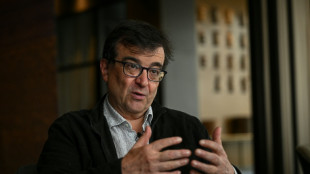 Pope Francis saw clergy's lack of humility as a 'cancer': author
Pope Francis saw clergy's lack of humility as a 'cancer': author
-
Weinstein accuser recounts alleged rape at assault retrial in NY

-
 Piastri heads into Miami GP as the man to beat
Piastri heads into Miami GP as the man to beat
-
US economy unexpectedly shrinks in first quarter, Trump blames Biden
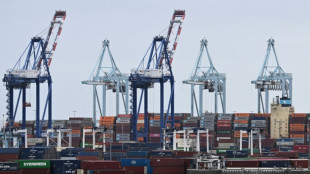
-
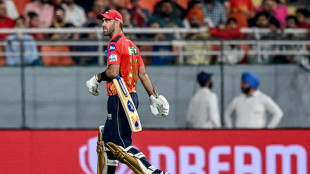 Maxwell likely to miss rest of IPL with 'fractured finger'
Maxwell likely to miss rest of IPL with 'fractured finger'
-
Syria reports Israeli strikes after warning over Druze as sectarian clashes spread

-
 Despite war's end, Afghanistan remains deep in crisis: UN relief chief
Despite war's end, Afghanistan remains deep in crisis: UN relief chief
-
NFL fines Falcons and assistant coach over Sanders prank call

-
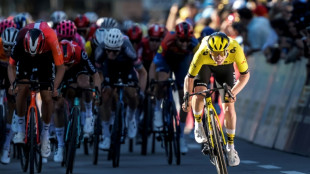 British teen Brennan takes stage 1 of Tour de Romandie
British teen Brennan takes stage 1 of Tour de Romandie
-
Swedish reporter gets suspended term over Erdogan insult
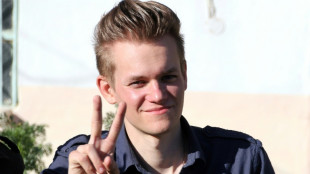
-
 Renewable energy in the dock in Spain after blackout
Renewable energy in the dock in Spain after blackout
-
South Africa sets up inquiry into slow apartheid justice
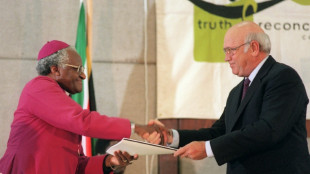
-
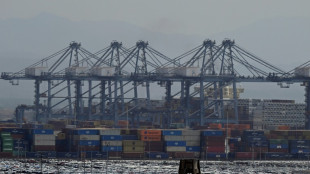 Stocks retreat as US GDP slumps rattles confidence
Stocks retreat as US GDP slumps rattles confidence
-
Migrants' dreams buried under rubble after deadly strike on Yemen centre
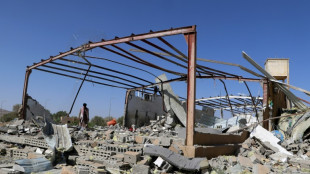
-
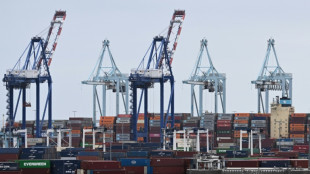 Trump blames Biden's record after US economy shrinks
Trump blames Biden's record after US economy shrinks
-
UK scientists fear insect loss as car bug splats fall
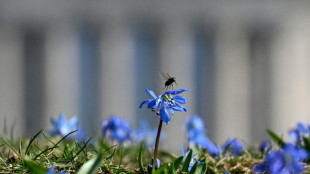
-
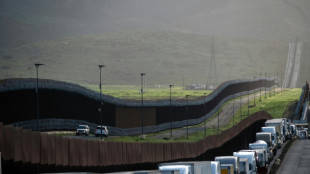 Mexico avoids recession despite tariff uncertainty
Mexico avoids recession despite tariff uncertainty
-
Rwandan awarded for saving grey crowned cranes

-
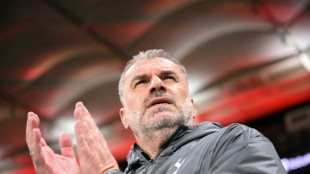 Spurs have 'unbelievable opportunity' for European glory: Postecoglou
Spurs have 'unbelievable opportunity' for European glory: Postecoglou
-
Microsoft president urges fast 'resolution' of transatlantic trade tensions

-
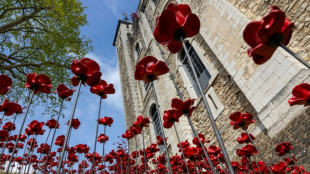 Poppies flourish at Tower of London for WWII anniversary
Poppies flourish at Tower of London for WWII anniversary
-
US economy unexpectedly shrinks on import surge before Trump tariffs
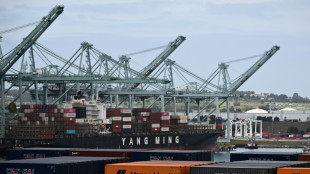
-
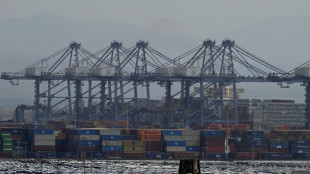 Stocks drop after US economy contracts amid tariffs turmoil
Stocks drop after US economy contracts amid tariffs turmoil
-
US economy unexpectedly shrinks on import surge ahead of Trump tariffs
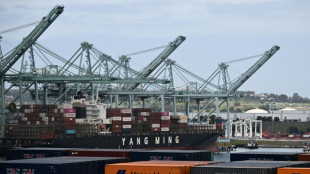
-
 Dravid says Suryavanshi, 14, needs support from fame
Dravid says Suryavanshi, 14, needs support from fame
-
Arsenal can win 'anywhere' says Merino after Champions League defeat by PSG
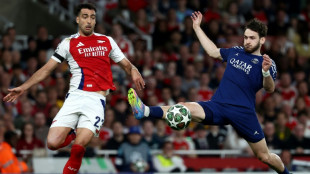
-
 Bangladesh crush Zimbabwe by an innings in second Test
Bangladesh crush Zimbabwe by an innings in second Test
-
Swiatek recovers against Keys to reach Madrid Open semis
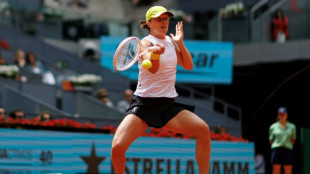
-
 Spurs captain Son out of first leg of Europa League semi-final
Spurs captain Son out of first leg of Europa League semi-final
-
US economy unexpectedly shrinks in first three months of Trump presidency
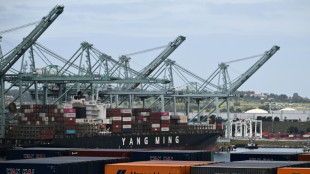
-
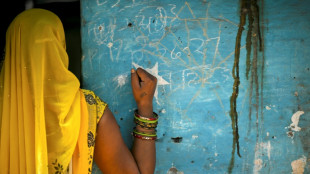 India to ask caste status in next census for first time in decades
India to ask caste status in next census for first time in decades
-
Burkina junta rallies supporters after claimed coup 'plot'

-
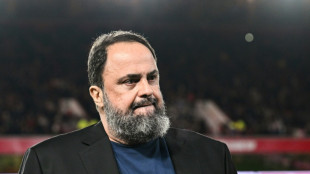 Forest owner Marinakis steps back as European qualification looms
Forest owner Marinakis steps back as European qualification looms
-
US economy unexpectedly contracts in first three months of Trump presidency
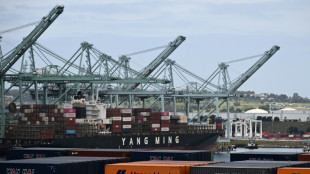
-
 Bilbao will give 'soul' to beat Man United: Nico Williams
Bilbao will give 'soul' to beat Man United: Nico Williams
-
Sweden arrests teen after triple killing
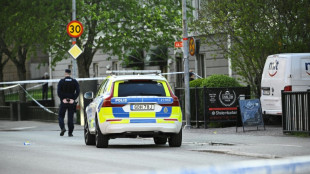

Giant Holocaust project marks 100,000-plaque milestone
The world's largest grassroots Holocaust memorial project has laid its 100,000th personalised plaque, as the US ambassador to Germany honoured her family members who fled the Nazis with an emotional ceremony.
When sculptor Gunter Demnig started the Stolpersteine, or "stumbling blocks", initiative three decades ago, he had little idea it would spread to more than 20 countries in Europe and crystallise many of the fraught contemporary questions around historical remembrance.
Each block, or Stolperstein, the size of a cobblestone, bears a stark engraving with the name of a victim, birthdate, date of deportation or escape and, if known, date and place of death.
The shiny brass of the plaques, embedded in the pavement in front of the victim's last home, catches the light, encouraging passers-by to stop and read the small inscriptions.
Last Friday, Demnig placed the 100,000th plaque in Nuremberg, the German city associated with the Nazis' giant torchlight parades and the 1935 race laws that stripped Jews of their rights.
On Tuesday, he joined US Ambassador Amy Gutmann in the picturesque southern city of Feuchtwangen to lay eight blocks for her German Jewish relatives.
"As the US ambassador, the daughter of Kurt Gutmann, a Jewish refugee from Feuchtwangen, I feel like we have come full circle from trauma to tribute," she said.
- 'Madness' -
While still a college student in 1934, Kurt Gutmann realised he and his family would not be safe in the country under Adolf Hitler and escaped to India, where his parents and five other relatives eventually joined him as the Nazis' extermination campaign gathered pace.
He later settled in New York, where Amy Gutmann was born.
"With enormous foresight for a young man of only 23, Kurt Gutmann, my father, recognised the madness that was sweeping his home country," said Gutmann, 73, fighting back tears. "He was a hero."
She said that over the past year, "I have learned more about what my family experienced in Nazi Germany than I ever heard from them," describing a "wall of silence" around Holocaust survivors.
Gutmann told guests at the commemoration in Feuchtwangen, which had an 800-year-old history of Jewish life, that the Stolpersteine gave her "the honour of bringing some closure for my family".
Demnig started the Stolpersteine in 1996, hoping to bring the unfathomable dimensions of the Holocaust down to a human scale. The project stands in marked contrast to the sprawling, more abstract memorial that later opened in central Berlin for the Nazis' six million Jewish victims.
"My 100,000 stones are only so many," Demnig, 75, told AFP, squeezing together two fingers in a pinch.
"But maybe someday there will be 200,000," he said. "It will always remain a symbol. But I think this symbol is very important."
- 'Different image' -
The Stolpersteine are rooted in the Talmud, the central text of Judaism, which says that a person is forgotten only when their name is forgotten. They also aim to keep the memory of the Holocaust alive as the last survivors die off.
"The origin of the project is of course no reason for joy," Demnig said.
"But when I see how happy these relatives are that their name is now back here, and I think that many go home again with a different image of Germany, then I know why I do it."
Descendants often travel from abroad to lay the stones, which cost around 130 euros ($139) to cover Demnig's expenses, and which are often financed by local sponsors.
Current residents of homes from which Nazi victims were deported frequently attend the inauguration ceremonies and lay flowers for victims, while high school students research the biographies as part of history classes.
Although the Stolpersteine are now part of the landscape throughout Germany and many other European countries, some critics say the placement of the stones in pavement invites passers-by to tread on them, desecrating the victims' memory.
The Stolpersteine project has grown during a time in which Germany's Jewish community has flourished, now numbering more than 200,000 people.
P.Stevenson--AMWN


